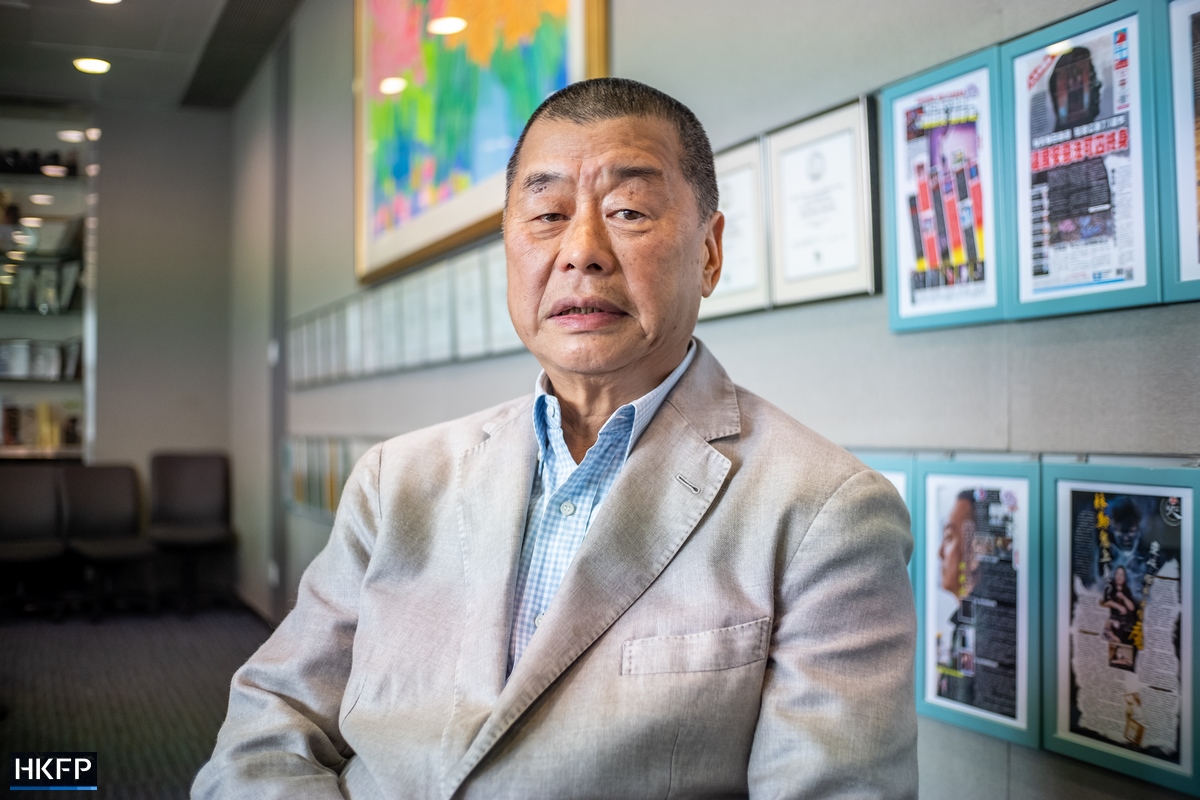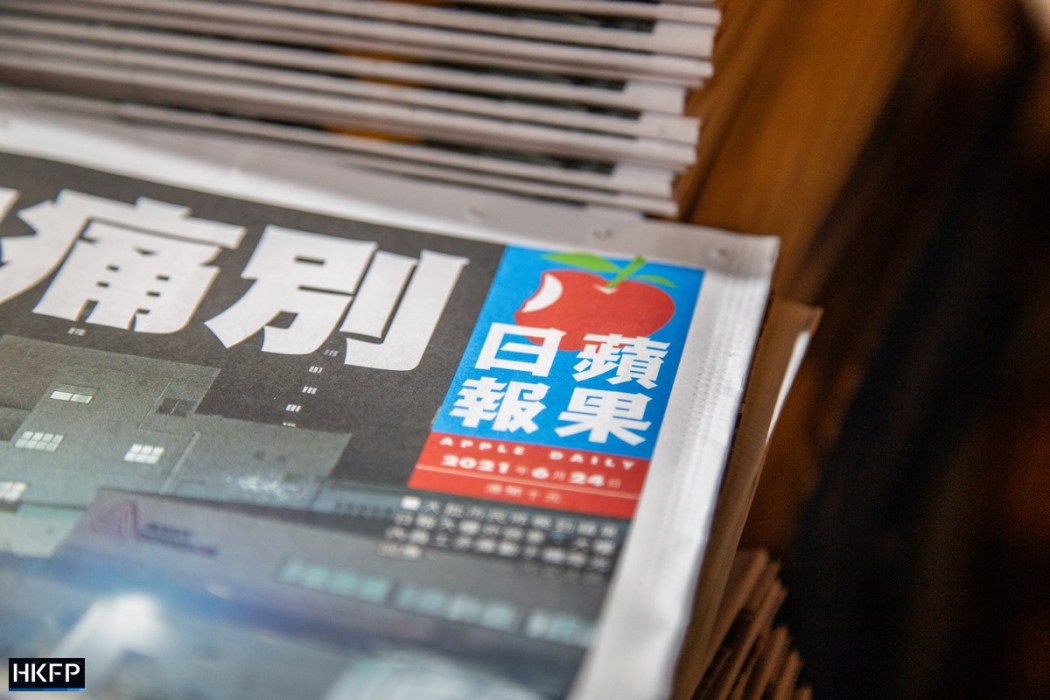Hong Kong prosecutors have cited an expert’s report on social media platforms in media mogul Jimmy Lai’s closely-watched national security trial, in which he stands accused of conspiring to collude with foreign forces and publish “seditious” materials.

Lai, the founder of the now-defunct Apple Daily newspaper, appeared before a panel of three handpicked national security judges on Tuesday as the trial entered its eighth day. Wearing a brown jacket, the 76-year-old smiled and made gestures at people in the public gallery while waiting for the proceedings to begin.
Much of Tuesday’s court session involved government prosecutor Ivan Cheung reading a statement by a computer forensics expert, who was asked by the police National Security Department (NSD) to prepare a report on messaging and social media platforms Telegram, WhatsApp, Signal, Facebook, Twitter – now known as X – and YouTube. The expert, Chow Kam-pui, is an associate professor at the University of Hong Kong’s computer science department.
The prosecution is relying on evidence, including messages and social media posts made on those digital platforms by Lai, or his alleged co-conspirators, to make their case.
Cheung read out Chow’s report, which said he was tasked by the NSD to explain the basic functions of the six social media platforms and how accounts are created, among other information.

For Telegram, WhatsApp and Signal, Chow detailed in his report how group chats work, such as who can edit the group’s information and who can add members. He also explained the apps’ functions including features allowing users to delete and edit messages, and in the case of WhatsApp, what it means if two blue ticks appear next to a text.
Cheung then went on to read out Chow’s statement regarding Facebook. He explained that sharing a post on the platform is the “most valuable form of engagement” especially if accompanied with a comment, increasing the chances of a post going viral and driving more traffic to the website that a post is linked to.
Chow also looked into Twitter, which Lai was active on from May 2020, when he made his account, following the advice of his assistant Mark Simon, the prosecution said last week.
During the opening statements, the prosecution cited multiple Twitter posts made by Lai, many in which he tagged overseas activists and politicians and shared links to Apple Daily’s English articles.

The computer science expert described the features of Twitter, including the different types of posts such as tweets and quote tweets, also known as retweeting a post with a comment. Chow wrote that tagging people in posts was “simple” and that anyone could tag accounts so long as they were not blocked by them.
Chow also described Twitter’s verification system, Cheung said. Up until November 2022, users with a blue checkmark meant they had been verified by Twitter to ensure that the account was actually owned by the person or organisation it claimed to represent. But Twitter’s new owner Elon Musk modified the feature when he took over the platform, requiring users to be subscribers of Twitter Blue – a paid subscription service – in order to obtain a blue checkmark, Chow explained.
Regarding YouTube, Chow said the Google-owned video hosting website was the second most visited website in the world. Users register for a YouTube account by signing into Google, allowing them to upload videos, make playlists and leave comments.
The expert also described YouTube’s livestreaming feature per the NSD’s request, Cheung said. The livestream function was introduced to YouTube’s mobile app in 2017, and initially, only channels with at least 10,000 subscribers could create a livestream. Now, any YouTube channel with at least 50 subscribers can do so, Chow wrote.

Lai, who has been in custody since December 2020, was charged alongside three companies linked to the now-defunct newspaper he founded in 1995: Apple Daily Limited, Apple Daily Printing Limited, and AD Internet Limited. The companies also denied the charges.
The activist faces one count of conspiring to publish “seditious” materials and two counts of conspiring to collude with foreign forces. The three companies face one count of the sedition charge and one count of the foreign collusion charge.
Accomplice witnesses to testify
Seen globally as a bellwether for the city’s press freedom, Lai’s trial – a High Court case, but being held in the larger West Kowloon Law Courts Building to accommodate the public’s and media’s interest – is scheduled to last 80 days. Lai pleaded not guilty to the charges last week.
On Tuesday, lead prosecutor Anthony Chau said the prosecution was meant to call Cheung Kim-hung to testify as an accomplice witness on Tuesday. Cheung, the former CEO of Next Digital, is among the company’s former executives who was charged alongside Lai and who pleaded guilty in November 2022. They are now set to testify against Lai.

But with news on Monday that Lai’s lead defence counsel Robert Pang would skip the trial for two weeks over personal reasons, the court would not call the witness yet, Chau said.
Cheung finished reading out Chow’s statement on Tuesday afternoon. The trial was adjourned to Wednesday, with the prosecution slated to read out a statement from a witness with an expertise in financial investigations.
Beijing imposed a national security law on Hong Kong in June 2020 following a year of protests and unrest sparked by a controversial extradition law, which would have allowed the transfer of fugitives to mainland China to stand trial.
The law criminalises subversion, secession, foreign collusion and terrorism. Scores of activists have been arrested and charged under the law, which critics say has been used to silence the opposition and crack down on civil society groups. Authorities, however, maintain that the law has restored peace and stability to the city.
Support HKFP | Policies & Ethics | Error/typo? | Contact Us | Newsletter | Transparency & Annual Report | Apps
Help safeguard press freedom & keep HKFP free for all readers by supporting our team
























